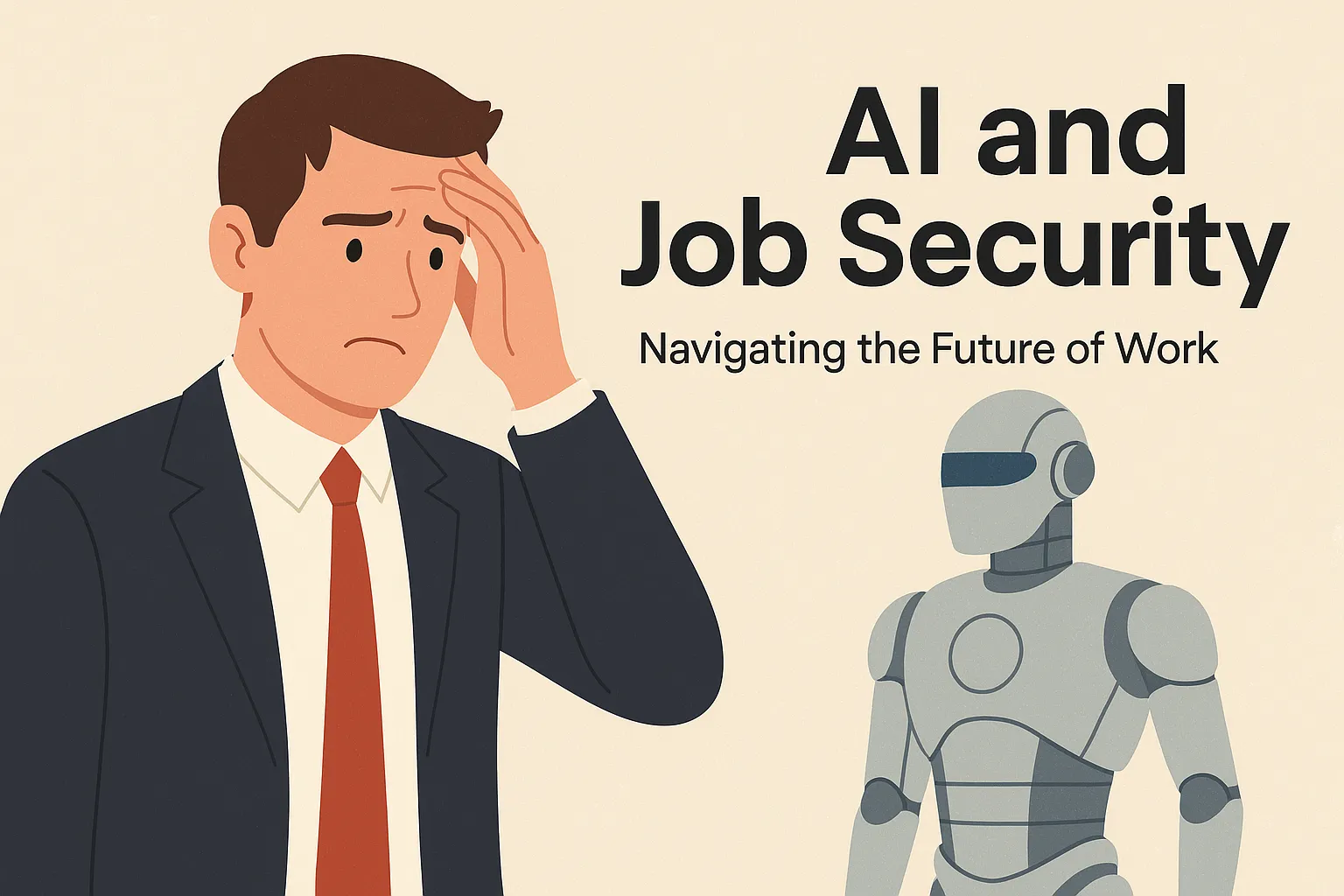The Rise of AI: A Double-Edged Sword
The initial excitement around AI revolved around automation of repetitive tasks and the promise of freeing humans from mundane work. However, as AI capabilities expanded, its reach began encroaching into areas traditionally reserved for skilled professionals — data analysis, customer service, software development, design, and even decision-making processes.
Mid-level technical professionals, such as software engineers, system administrators, and data analysts, have started seeing AI not just as a tool, but as a potential competitor. Platforms like GitHub Copilot can now write code, AI-based diagnostic tools assist in engineering problem-solving, and intelligent systems handle data reporting faster and with fewer errors than human teams.
This rapid evolution naturally gives rise to anxiety: If a machine can do my job faster and cheaper, where does that leave me?
Why the Fear of AI Taking Over Jobs?
There are several reasons behind the growing unease among professionals:
1. Speed of Technological Advancement
AI is advancing exponentially. Technologies that seemed experimental just a few years ago are now integrated into business processes. The quick pace makes it difficult for workers to keep up, making them feel vulnerable to being left behind.
2. Cost Efficiency for Employers
Companies are constantly seeking ways to reduce operational costs. AI can operate 24/7, doesn’t require health benefits or vacations, and reduces the margin of human error. From a financial standpoint, replacing human labor with AI solutions often makes sense.
3. Job Role Redundancy
AI doesn't just automate simple tasks anymore — it is capable of performing complex functions that involve judgment, prediction, and creativity. This directly threatens many mid-level roles where responsibilities are often procedural and repetitive.
4. Lack of Clear Communication
Many organizations adopt AI without providing clear roadmaps for how it will impact existing employees. The uncertainty creates a breeding ground for fear, rumors, and low morale.
Is the Fear Justified?
The fear is partly justified, but not entirely. AI will certainly change the job landscape, but change doesn’t always mean loss; it can also mean transformation and opportunity.
A World Economic Forum (WEF) report in 2023 estimated that while AI and automation would displace about 85 million jobs by 2025, they would also create around 97 million new roles. These new roles will demand different skills — primarily centered around managing, developing, and complementing AI systems.
Rather than completely erasing jobs, AI is more likely to redefine them. Professionals who adapt, reskill, and embrace new technologies will remain indispensable.
Jobs That AI is Unlikely to Replace
Some roles are inherently resistant to AI takeover, especially those requiring:
- Critical Thinking and Problem-Solving: While AI can suggest solutions, the ability to think outside the box and handle complex, ambiguous problems remains a human strength.
- Emotional Intelligence and Empathy: Roles involving human interaction, counseling, negotiation, leadership, and mentoring need emotional depth, something AI struggles to replicate.
- Creativity and Innovation: AI can assist creativity, but the spark of human imagination in art, literature, marketing strategies, and design is uniquely human.
- Strategic Decision-Making: High-level strategic planning involves ethical considerations, long-term vision, and nuanced judgment — areas where human intuition outperforms algorithms.
Thus, instead of fearing AI, professionals should identify and hone these uniquely human skills to future-proof their careers.
How Professionals Can Adapt and Thrive
1. Continuous Learning
Lifelong learning is no longer optional; it’s essential. Courses in AI, machine learning, data science, cybersecurity, and related fields are easily accessible online. Even gaining a foundational understanding of how AI works can be a significant advantage.
2. Developing Soft Skills
Technical skills remain important, but soft skills — communication, leadership, adaptability, and critical thinking — are becoming even more valuable in an AI-enhanced workplace.
3. Collaborate With AI
Rather than seeing AI as a rival, professionals should see it as a partner. Learn how to leverage AI tools to enhance productivity, improve decision-making, and focus on higher-value activities.
4. Specialization
Generalist roles are more susceptible to automation. Deep expertise in a specialized field — whether it's cybersecurity, AI ethics, or system architecture — provides greater job security.
5. Stay Agile
The future is unpredictable. Professionals who can pivot quickly, adapt to new technologies, and seize emerging opportunities will be better positioned to succeed.
A New Era of Work: Human-AI Collaboration
We are entering a new era where collaboration between humans and AI will define success. AI will handle large datasets, routine decision-making, and repetitive tasks, freeing human workers to focus on innovation, strategy, and complex problem-solving.
Consider the example of doctors: AI can now detect early signs of diseases from imaging scans better than humans in some cases. Yet, the doctor’s role in explaining diagnosis, comforting patients, and making holistic care decisions remains irreplaceable. Similarly, engineers can use AI for simulations, testing, and predictive analysis, but they still need to innovate, design, and problem-solve creatively.
AI will augment human capabilities, not replace them entirely.
Conclusion: Embrace the Change, Own the Future
Yes, the rise of AI is reshaping the professional world — and it's natural to feel anxious about such a profound shift. However, history shows us that every major technological revolution (from the industrial revolution to the digital age) displaced certain roles but also created entirely new industries and opportunities.
The key to securing a place in the future of work lies in adaptability, continuous learning, and leveraging the strengths that make us uniquely human.
Instead of asking, "Will AI take my job?", a better question might be, "How can I work with AI to make myself even more valuable?"
The future isn’t about humans versus machines — it’s about humans with machines. And for those willing to learn, adapt, and innovate, the future has never been brighter.
